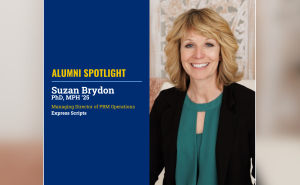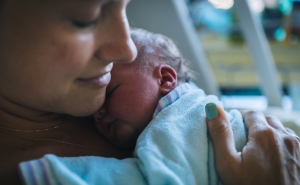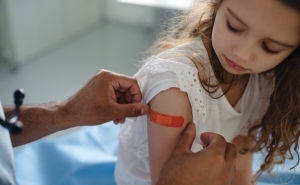Johns Hopkins Bloomberg School of Public Health to Offer Educational Modules for School and District Leaders About In-Person Learning in the Era of COVID-19
December 7, 2020
Johns Hopkins Bloomberg School of Public Health to Offer Educational Modules for School and District Leaders About In-Person Learning in the Era of COVID-19
SEVEN-MODULE SERIES PROVIDES U.S. SCHOOL & DISTRICT OFFICIALS WITH BEST PRACTICES TO REDUCE COVID-19 RISKS FOR KIDS, TEACHERS, AND STAFF DURING IN-PERSON LEARNING
As COVID-19 cases surge across the country, school and district leaders are looking for clear and consistent guidance on the safest ways to reopen school facilities. They want to know how to minimize COVID-19 infection risk for students, teachers, and staff in K-12 schools. In response to that demand, the Johns Hopkins Bloomberg School of Public Health, the Johns Hopkins University School of Medicine, and the Consortium for School-Based Health Solutions, with support from Bloomberg Philanthropies, today launched online educational modules. These modules aim to help school and district leaders plan for and implement in-person instruction when they deem it safe and appropriate to do so, and to help schools and districts that are already open assess their current COVID-19 prevention strategies.
The series of self-paced, web-based, educational modules and videos is part of the COVID-19 Resources for Practitioners and the Johns Hopkins University COVID-19 Training Initiative, which offer expertise and practical guidance to anticipate and meet emerging needs in response to COVID-19 where people live, learn, and work.
These educational modules focus on a range of best practices and guidance on topics that school leaders need to be aware of, including considerations for implementing public health mitigation strategies, such as masking, distancing, ventilation, and creating cohorts of students, as well as screening and testing approaches.
“The goal of these modules is to provide schools and districts with accessible, practical strategies to help them tackle the responsibility of school reopening that minimizes risk of transmission. The modules can also help them identify gaps in their current plans,” said Sara Johnson, PhD, MPH, associate professor at Johns Hopkins School of Medicine and the Bloomberg School of Public Health, director of the Rales Center for the Integration of Health and Education at Johns Hopkins, and co-director of the Johns Hopkins Consortium for School-Based Health Solutions.
In the past nine months, Johns Hopkins faculty have offered technical assistance to school systems around the country to support reopening planning processes. “In speaking with school leaders, we’ve found they often have many of the same questions,” said Megan Collins, MD, MPH, assistant professor of Ophthalmology, Wilmer Eye Institute, the Berman Institute of Bioethics, and co-director of the Consortium for School-Based Health Solutions. “These modules are designed to walk school leaders through the process of developing, implementing, and continuously updating a COVID-19 strategy when they are ready to bring students and staff back for in-person school.”
Johns Hopkins created these educational modules to ensure that school officials have access to the same general information and approaches to decrease the risk of COVID-19 in schools.
“Although we designed these learning modules primarily for educational leaders, they may also help public health agencies, school health staff, and others who collaborate closely with school systems to synergistically plan, implement, and manage in-person school,” commented Megan Tschudy, MD, MPH, assistant professor of Pediatrics and medical director of the Johns Hopkins Harriet Lane Clinic.
“Schools are facing an enormous responsibility to reduce transmission of COVID-19 in their buildings to keep kids, teachers and staff, and communities safe,” said Kate Connor, MD, MSPH, assistant professor of Pediatrics at the Johns Hopkins University School of Medicine and medical director of the Ruth and Norman Rales Center for the Integration of Health and Education. “We hope the modules will help streamline the health and safety planning process and provide the kind of tailored support that many schools are asking for,” said Connor.
As the COVID-19 pandemic continues to affect the United States and the world, public health practitioners and other frontline leaders need clear, consistent guidance and tools. From early on in this global health emergency, the Johns Hopkins Bloomberg School of Public Health, with the support of Bloomberg Philanthropies, has provided practitioners at the national and local levels with free, online educational modules and tools to plan and execute evidence-based prevention strategies.
The free education modules can be accessed on Consortium website here.
# # #
Media contacts: Jamie Smith at jamie.smith@jhu.edu and Carly Kempler at ckemple2@jhu.edu.





